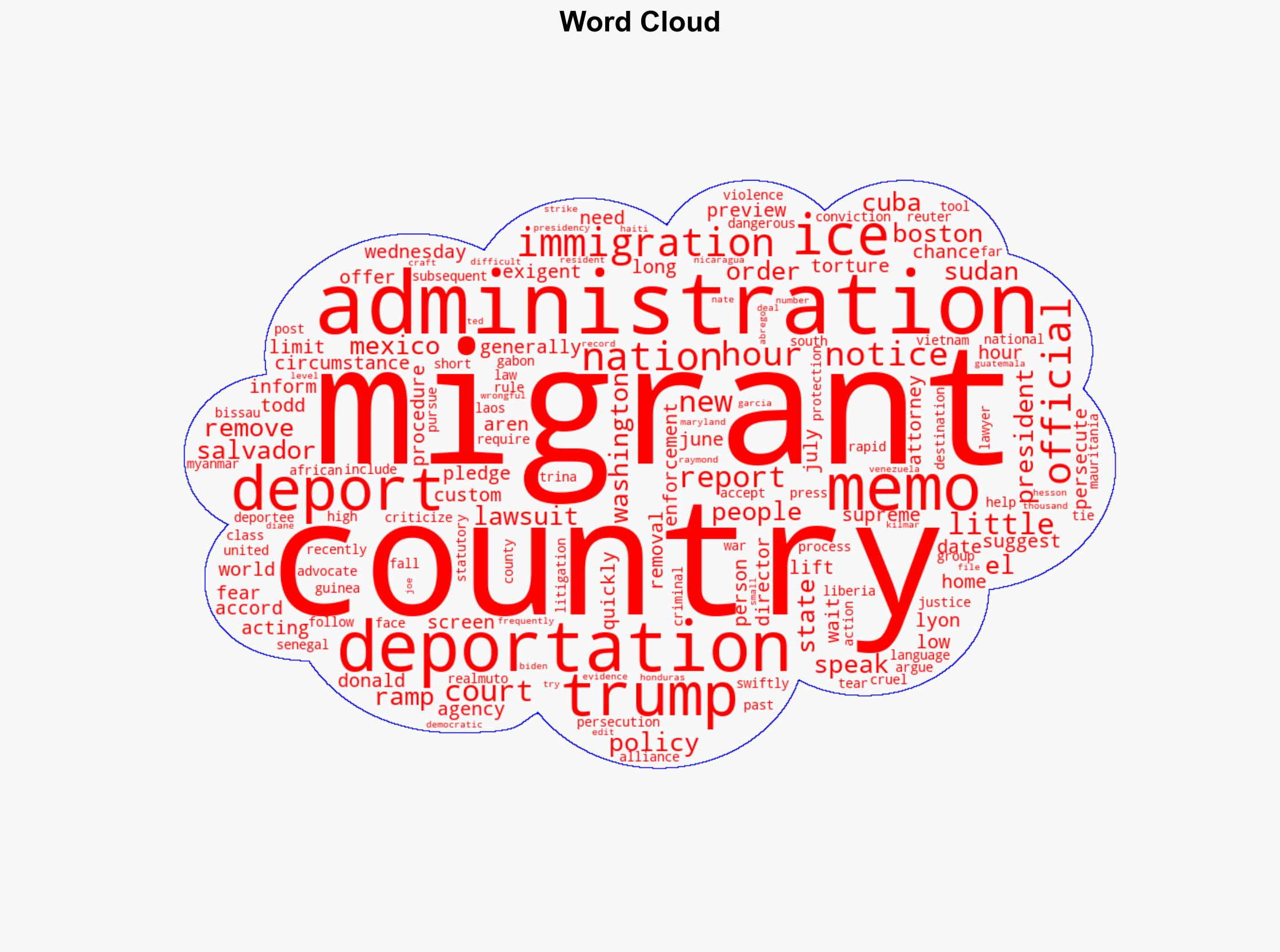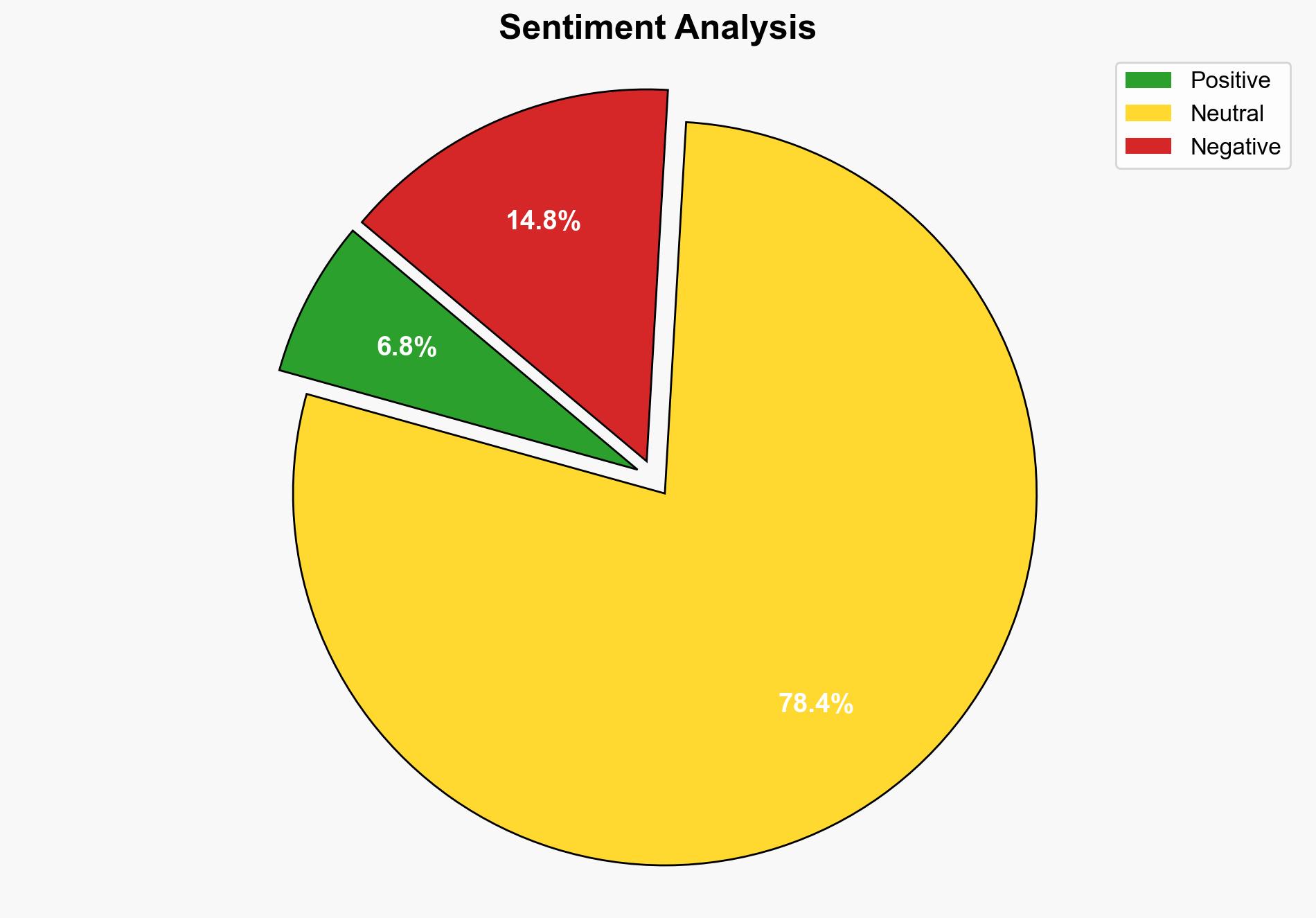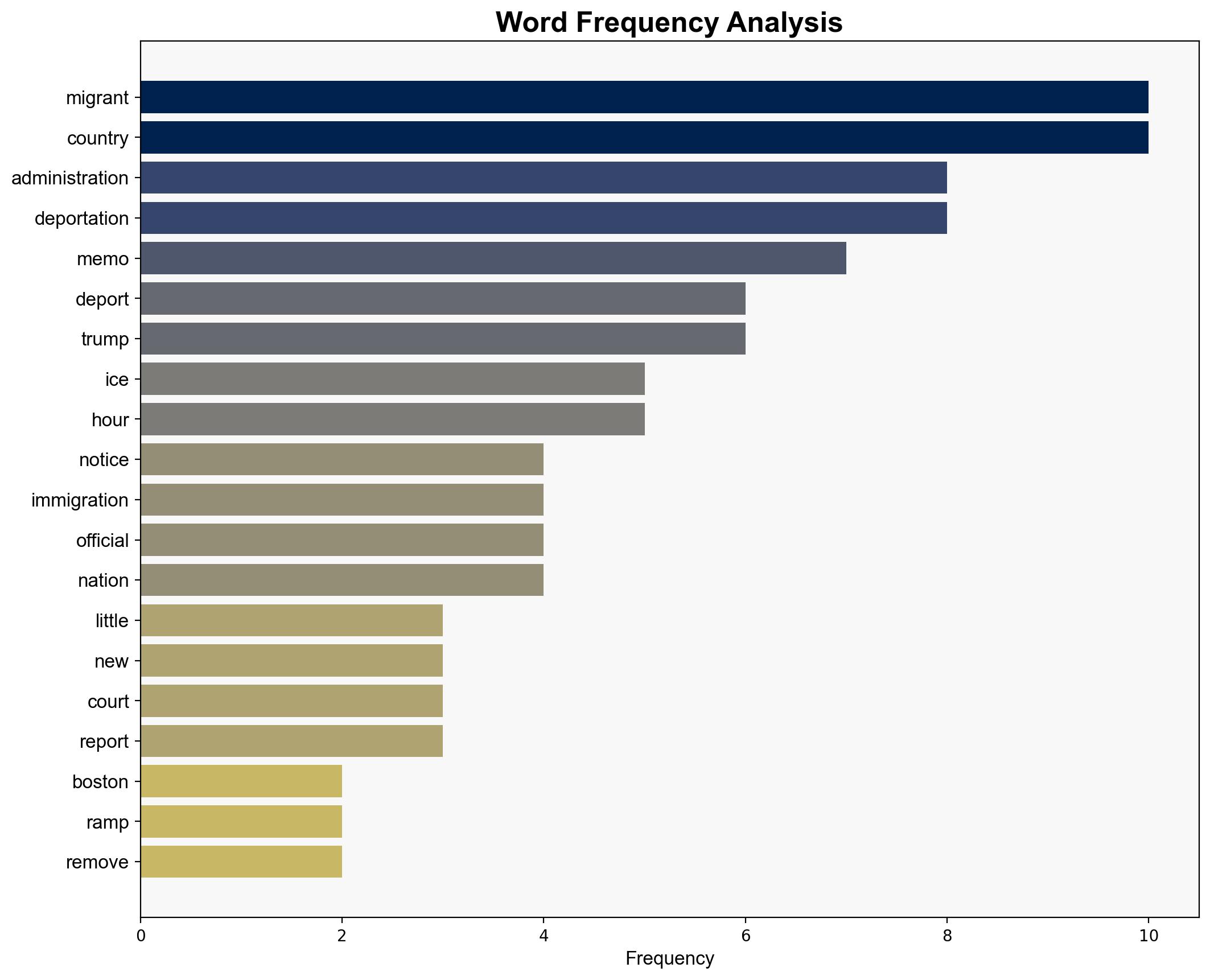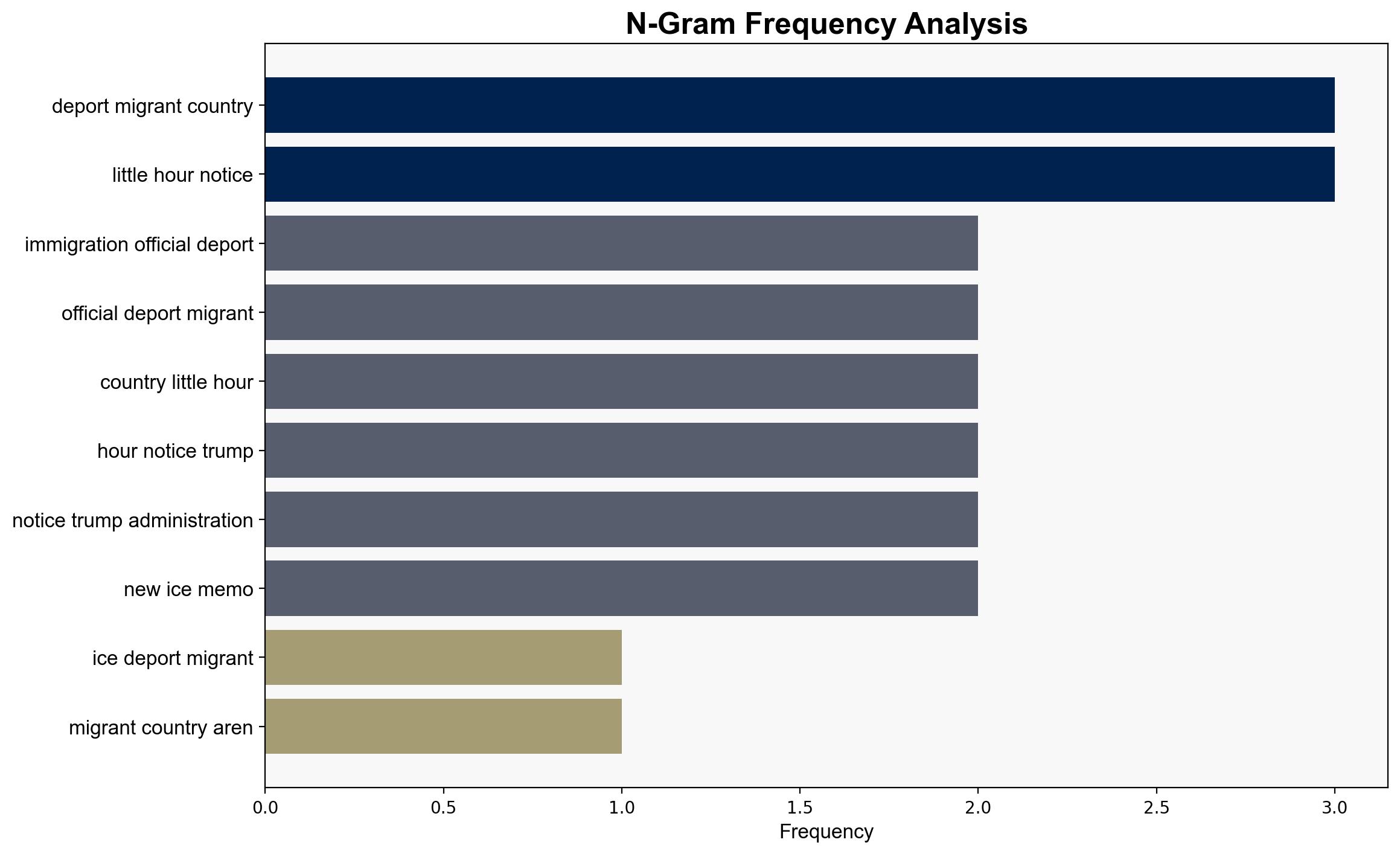ICE may deport migrants to countries they aren’t from with just six hours’ notice – USA Today
Published on: 2025-07-14
Intelligence Report: ICE may deport migrants to countries they aren’t from with just six hours’ notice – USA Today
1. BLUF (Bottom Line Up Front)
The recent policy shift by ICE to deport migrants to countries they are not originally from, with only six hours’ notice, poses significant humanitarian and legal challenges. This policy, rooted in a Trump administration memo, is likely to face legal scrutiny and could strain diplomatic relations with affected countries. Immediate attention is required to address potential human rights violations and international backlash.
2. Detailed Analysis
The following structured analytic techniques have been applied to ensure methodological consistency:
Causal Layered Analysis (CLA)
At the surface level, the policy appears as an administrative measure to expedite deportations. Systemically, it reflects a broader strategy to deter illegal immigration through stringent enforcement. The worldview underpinning this policy is one of prioritizing national security over individual rights. The myth driving this narrative is the perception of migrants as security threats.
Cross-Impact Simulation
The policy could lead to increased tensions with countries unwilling to accept non-citizens, potentially impacting bilateral relations. Economic dependencies on remittances from migrants may also be affected, leading to regional instability.
Scenario Generation
In a best-case scenario, diplomatic negotiations lead to revised agreements that respect human rights while addressing security concerns. In a worst-case scenario, widespread international condemnation results in sanctions or retaliatory measures. The most likely scenario involves legal challenges delaying implementation, leading to policy adjustments.
3. Implications and Strategic Risks
The policy introduces risks of human rights violations and legal challenges, potentially undermining the rule of law. There is a risk of increased anti-American sentiment in affected regions, which could be exploited by adversarial states or non-state actors. The policy also risks straining ICE resources and diverting attention from other critical security operations.
4. Recommendations and Outlook
- Engage in diplomatic dialogues with affected countries to establish clear protocols for deportations.
- Implement oversight mechanisms to ensure compliance with international human rights standards.
- Prepare for legal challenges by reviewing the policy’s alignment with existing laws and precedents.
- Scenario-based projections: Best case involves policy refinement through diplomatic engagement; worst case involves international isolation and legal setbacks; most likely involves gradual policy adjustments following legal challenges.
5. Key Individuals and Entities
Todd Lyon, Trina Realmuto, Kilmar Abrego Garcia
6. Thematic Tags
national security threats, immigration policy, human rights, international relations





